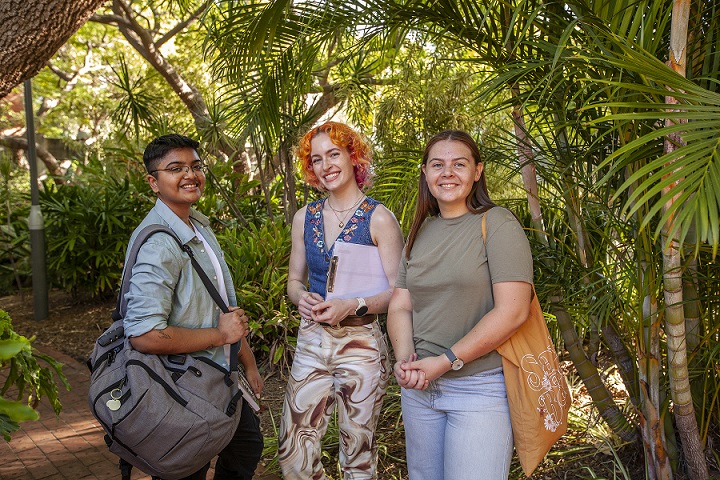
The 2023 United Nations Climate Change report reveals a 1.1°C temperature rise over the past 200 years, largely driven by human activity. While this might not seem like a lot, even the slightest change in global temperatures can have devastating effects on the planet’s ecosystems.
Worryingly, these changes in the climate have led to more frequent and hazardous weather events causing increasing destruction to people and the planet.
“Whilst we are all affected by this panoply of globalised crises, it is our young that will be left to deal with the mess,” Dr Sonja Kuzich, who researches in Education for Sustainability (EfS) and teaches a Master of Education course: Education for a Future at Curtin University, told The Educator.
“They sense the urgency as they have been voicing their concerns and anxieties about our collective future – we need to start listening.”
In 2019, the United Nations’ Department of Economic and Social Affairs (DESA) released its World Youth Report, delivering a powerful message to educators around the planet: ‘This generation can change the world – if we let them’.
Mission Australia’s Youth Survey Report 2022 found the top concern of young Australians is the state of environment, ahead of equity and discrimination, and mental health.
Fortunately, studies have shown that young Australians are becoming more politically aware and active, meaning there is plenty of room for educational institutions to act as a launch pad for students to bring about meaningful change.
Ahead of World Environment Day on June 5, Curtin University has announced the upcoming launch of its Planet Positive program, which offers students an undergraduate certificate or course specialisation, specifically designed to combat the environment and climate emergency.
The program includes options for an entry-point and stand-alone qualification, a supplementary qualification, or complimentary coursework as part of a student’s degree.
Hope – backed by evidence and precedent
Program academic champion, Professor Josh Byrne, Curtin’s Faculty of Humanities Dean of Sustainable Futures, said the Planet Positive initiative builds on the notion of regenerative design, incorporating leading industry concepts such as ‘climate positive’ and ‘nature positive’.
“These concepts go beyond simply being net zero, or minimising ecological impact, and instead promote the need for restoration and rebuilding natural capital,” Professor Byrne told The Educator.
“For example, we can repair and restore damaged landscapes and we can retrofit the built environment in ways that are better for people and the environment. This can be done in ways that support jobs, communities and grow the economy. It’s about showing there is hope backed by evidence and precedent.”
Secondly, says Professor Byrne, the program is about providing students with an opportunity to engage in practical, local, real-world projects that make a positive environmental and social difference.
“In the case of Planet Positive, this is done via a work-integrated learning capstone unit called the ‘Sustainability Challenge’,” he said.
“Additional opportunities will be provided through a Learning Community open to all participating students, academics and industry partners, and include activities such as field trips and work experience.”
Professor Byrne said the program utilises existing expertise within the Faculty of Humanities and across the University.
“Through developing the program as a shared initiative between the Dean of Sustainable Futures and the Dean of Learning and Teaching, and aligning with Curtin’s strategic direction of prioritising student experience and sustainability leadership, it was a clear and compelling proposition from the outset,” Professor Byrne explained.
“Like all good initiatives, this one will grow and be refined through shared experience between students, staff and collaborating partners.”
Professor Byrne said these learnings will be captured and shared in the spirit of supporting others to pursue similar initiatives.
“The scale and of the environment and climate emergency is immense, but it can be addressed through leadership and cooperation. This is at the heart of being ‘planet positive’.”
‘Climate change is already a reality’
Three student champions have been selected to support the new program including Curtin Fine Arts student Chase Hayes, Curtin Commerce student Krishna Karthikeyan, and Curtin Interior Architecture student Zoe Thomas.
Chase said their desire to take an active role in combatting climate change was forged as a five-year-old when they experienced their first hurricane and cemented during the catastrophic fury of Hurricane Harvey, a 500-year flood event in 2017.
“Too often, climate change is debated as some future possibility when for so many of us, it is already a reality. I mourn the people we could protect if only we could set our priorities straight,” Hayes said.
“As a university student, so much of the rhetoric is about preparing for careers, learning practical skills to apply for a future job, and using my time in university to make myself the most appealing job candidate when I enter the workforce.”
What had been missing, said Hayes, was “a fundamental consideration” of how higher education can prepare students for the challenges we will continue to face as part of the climate crisis.
“Being involved in Planet Positive is an opportunity for me to apply my passion towards enacting real world change, and with each person investing their time and efforts to such a critical cause, I become more and more hopeful that the people I care about will not have suffered in vain.”


